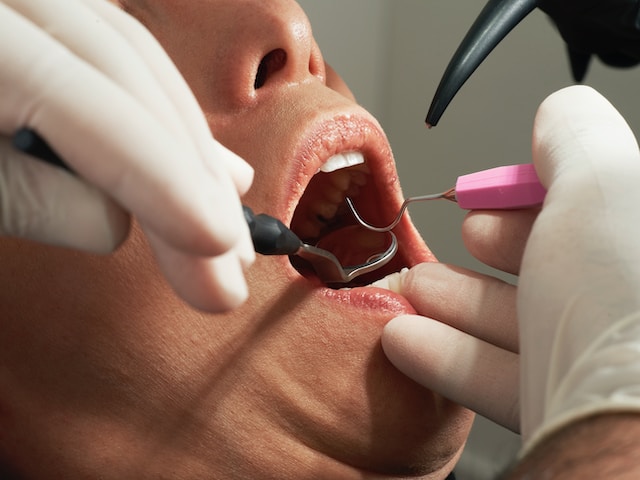As you navigate the landscape of cosmetic dentistry for a brighter smile, composite bonding or dental bonding emerges as a beacon of hope that can help enhance your smile without the invasiveness that more complex procedures proffer.
Yet, amid the echoes of satisfied patients and the acclaimed before-and-after transformations, you find yourself pondering: How long will this aesthetic triumph last on your teeth? Allow us to peel back the layers and unmask composite bonding for what it truly is – a transformative and hopeful invention fraught with the inevitable transience of time.
The Bonding Lifespan
The lifespan of your composite bonding is a narrative filled with variables. It does not have a single, predestined period, but you can expect its lifespan to range from 4 to 8 years. This variance isn’t without reason – your daily oral habits and the intrinsic qualities of the bonding material shape a composite bond.
Factors like your oral hygiene, the amount of bonding applied, the location of the bonded teeth, and habits such as chewing ice, eating hard candy, or excessive nail-biting, play critical roles in determining the longevity of the bonding. Depending on how you indulge in these practices, they can either support or challenge the resilience of your cosmetic enhancements.
Maintaining a Composite Bond
Your daily maintenance routine plays a starring role in the longevity of composite bonding. Brushing twice daily, flossing, and regular dental appointments are key elements in preserving your bonding’s integrity. To this end, dentists often suggest avoiding stain-inducing foods and beverages like coffee, tea, red wine, cola, berries, soy sauce, balsamic vinegar, curry, tomato-based sauces, and beets.
Composition of Dental Bonding
The material itself—the composite resin—is a blend of organic and inorganic compounds. The basic organic components are the resin, initiator, and coupling agent, while the primary inorganic constituent is the filler, made of glass or ceramic particles to mimic the natural appearance of teeth.
Over several iterations, this material has grown more resistant to the tests of time, though it remains vulnerable to life’s unexpected moments of pressure and impact. Therefore, even though contemporary composites wield robustness against the march of time, they are not impervious to the wear and tear inflicted by teeth grinding or accident.
Determinants of Composite Bonding Longevity
- The Procedure:
The initial procedure, wherein the tooth’s surface is etched and the composite and curing light applied, sets the stage for the lifespan of bonding. The expertise of your dentist is paramount here, as meticulous application and proper curing ensure that the bond is as strong as can be.
- Touch-ups and Continued Care:
Life may bring plot twists that affect your composite bonding, and as such, bonded teeth might require maintenance. Chips or discolouration are common issues in the life of composite bonding, but they are not the end. Repairs can be made, and the lifespan of the bonding can be extended. This ability to touch up and repair is not merely a footnote; it’s one of the significant advantages of composite bonding over other dental restorations.
- Re-Bonding:
A critical aspect of the lifespan of composite bonding is knowing when it’s time to bid farewell to the old and welcome the new. Your dentist can help identify the indicative signs, such as discolouration that won’t lift or edges that have become rough and worn—indicating it’s time for a new resin application.
In Conclusion
The question of the longevity of composite bonding can be answered with a simple answer: 6 years plus or minus 2. However, a simple number doesn’t do the analysis justice, as a confluence of personal habits, material quality, dental expertise, and maintenance decides the lifespan.
The lifespan of composite bonding, therefore, is a tale of partnership between you and your dentist. With diligent care and attention, your bonding can continue to be a vibrant part of your everyday life, ensuring you remain with a captivating smile, day in and day out.
Are you still sitting on the fence about composite bonding? Schedule a consultation with the Walton Practice in Surrey to see a composite bonding surrey dentist to assess your compatibility or other alternatives.

